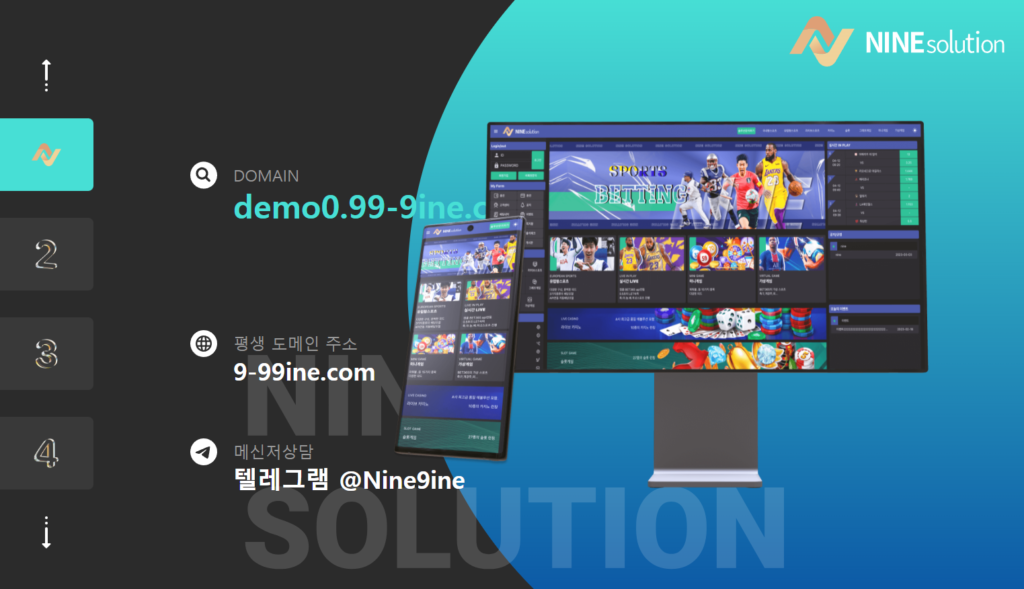In the realm of online entertainment, finding a platform that combines variety, excitement, and user-friendly features can be a daunting task. Enter 55 club, a premier online gaming destination that caters to a broad spectrum of interests, from exhilarating casino games to comprehensive sports betting. Whether you’re a novice or a seasoned player, 55Club offers an unparalleled experience that keeps you coming back for more. In this article, we’ll explore the numerous facets of 55Club that make it the go-to platform for gaming enthusiasts worldwide.
A Rich Tapestry of Gaming Options
Unrivaled Casino Offerings
At the core of 55Club’s appeal is its extensive selection of casino games. Players are greeted with an impressive array of choices that cater to every taste. The platform boasts hundreds of slot games, ranging from traditional fruit machines to modern video slots with captivating storylines and stunning graphics.
Exploring Slot Games
Slot enthusiasts will find plenty to love at 55Club. The collection includes:
- Classic Slots: Perfect for players who enjoy nostalgia, these games feature straightforward gameplay with three reels and simple paylines.
- Video Slots: These games often come packed with exciting themes, bonus rounds, and progressive jackpots, creating an immersive gaming experience.
- Branded Slots: Based on popular movies, TV shows, and franchises, these slots appeal to fans of pop culture.
With frequent updates to the library, players can expect new titles to be added regularly, ensuring that the excitement never wanes.
Table Games for Strategy Lovers
If spinning reels isn’t your style, 55Club has a diverse selection of table games that will suit your strategic mindset. Traditional games like blackjack, roulette, and poker are available in multiple variations, allowing players to choose their preferred rules and styles of play.
- Blackjack: Known for its low house edge, blackjack allows players to employ strategies to improve their odds.
- Roulette: The thrill of the spinning wheel attracts many players, with options to bet on numbers, colors, and combinations.
- Poker Variants: From Texas Hold’em to Omaha, poker enthusiasts can challenge themselves against both the house and other players.
Engaging Live Dealer Experiences
For those seeking an authentic casino atmosphere, 55Club’s live dealer games are a standout feature. These games bridge the gap between online and land-based casinos, allowing players to engage with professional dealers in real-time. Live streaming technology ensures that the action is dynamic and interactive.
In the live dealer section, players can enjoy classic games such as:
- Live Blackjack: Engage with dealers and make strategic decisions as the game unfolds.
- Live Roulette: Experience the thrill of watching the ball spin in real-time.
- Live Baccarat: A favorite among high rollers, this game offers a blend of strategy and luck.
The social interaction and high-quality streaming create an immersive environment that enhances the overall gaming experience.
Comprehensive Sports Betting Opportunities
Beyond the casino, 55Club excels in sports betting. With a vast range of sports to choose from, players can bet on everything from football and basketball to tennis and horse racing. The platform features competitive odds and various betting options, making it easy for users to get involved.
Major Sporting Events
55Club provides extensive coverage of major sporting events, allowing players to place bets on high-stakes matches. Popular events include:
- World Cup: Join the excitement as countries compete for glory on the global stage.
- NBA Finals: Bet on the championship series and follow your favorite teams.
- Grand Slam Tournaments: From Wimbledon to the US Open, tennis betting offers numerous possibilities.
The variety of betting options, including moneylines, point spreads, and prop bets, ensures that every player can find a way to engage with their favorite sports.
Virtual Sports for Instant Action
For those who crave fast-paced entertainment, 55Club’s virtual sports section is a game-changer. These simulated sports events allow players to place bets on virtual matches and races, with outcomes determined by advanced algorithms.
Virtual sports cover a wide range of options, including:
- Virtual Football: Experience the excitement of betting on simulated matches that mimic real football games.
- Virtual Horse Racing: Watch virtual horses race in real-time, making it an ideal choice for fans of racing.
- Virtual Basketball: Bet on virtual basketball games with fast-paced action and quick results.
These events typically last only a few minutes, providing instant results and gratification for players who prefer shorter gaming sessions.
A User-Centric Experience
Simplified Registration Process
Getting started with 55Club is straightforward, with a registration process designed to be quick and user-friendly. New players can create an account in just a few minutes, enabling them to dive into the action without any hassle.
Once registered, players can easily 55 club login and explore the extensive offerings of the platform.
Seamless Account Management
Managing your account on 55Club is intuitive and efficient. Players can make deposits using various secure payment methods, including credit cards, e-wallets, and bank transfers. The platform employs advanced encryption technology to ensure that all transactions are secure, allowing players to focus on their gaming experience.
Efficient Withdrawals
When it’s time to cash out your winnings, 55Club offers a hassle-free withdrawal process. Players can choose from multiple withdrawal options, with the platform committed to processing requests promptly. Withdrawals are typically handled quickly, ensuring that players receive their funds without unnecessary delays.
Mobile Gaming for Convenience
In today’s fast-paced lifestyle, the ability to play on the go is essential. 55Club has developed a dedicated mobile app that allows users to access their favorite games anytime, anywhere. The app is designed for both iOS and Android devices, providing a smooth and enjoyable gaming experience.
With the mobile app, players can enjoy all the features available on the desktop version, including:
- Full access to the casino and sports betting sections.
- Convenient account management, including deposits and withdrawals.
- Real-time notifications for promotions and updates.
This convenience ensures that players can stay engaged with their favorite games, even when they’re on the move.
Building a Thriving Community
Engaging with Fellow Players
55Club fosters a vibrant community among its users. Players have the opportunity to connect with fellow gaming enthusiasts through forums, social media channels, and community events. This interaction not only enriches the gaming experience but also allows players to share tips, strategies, and experiences.
The community aspect of 55Club encourages player engagement, making the platform feel more inclusive. Players can participate in discussions about their favorite games, strategies for winning, and upcoming sports events, creating a rich and engaging environment.
Excellent Customer Support
Outstanding customer support is a cornerstone of the 55Club experience. The platform offers multiple support channels, including live chat, email, and phone assistance. The customer service team is available 24/7, ensuring that help is always at hand.
Whether you have questions about account management, game rules, or promotional offers, the support team is quick to respond and dedicated to resolving any issues efficiently. This commitment to customer service adds to the overall positive experience of using 55Club.
Promotions and Bonuses to Enhance Your Play
Attractive Welcome Bonuses
To entice new players, 55Club offers generous welcome bonuses. These bonuses provide players with extra funds to explore the platform, allowing them to try out various games and betting options. New users can typically expect a combination of deposit match bonuses and free spins, making the registration process even more rewarding.
Ongoing Promotions for Loyalty
55Club doesn’t stop at welcome bonuses; it also provides a variety of ongoing promotions for existing players. These promotions include reload bonuses, cashback offers, and free spins on selected games. Regular promotions ensure that players have ample opportunities to boost their bankrolls and enhance their gaming experience.
Exclusive Loyalty Rewards
Loyalty is highly valued at 55Club. The platform features a comprehensive loyalty program that rewards frequent players with points that can be redeemed for various benefits. The more you play, the more points you accumulate, allowing you to unlock exciting perks as you progress through the loyalty tiers.
For high rollers, the VIP program offers even more exclusive rewards, including personalized service, higher withdrawal limits, and access to special events. This level of recognition enhances the overall experience, making players feel valued and appreciated.
Commitment to Responsible Gaming
As a responsible gaming platform, 55Club is dedicated to promoting safe and fair play. The platform provides various tools and resources to help players manage their gaming activities effectively. This includes setting deposit limits, time reminders, and self-exclusion options for those who need a break.
55Club also actively promotes awareness around responsible gaming, ensuring that players are informed about the potential risks associated with gambling. The platform collaborates with organizations specializing in responsible gaming to provide support and resources for players who may need assistance.
Conclusion
In conclusion, 55Club is not just an online gaming platform; it’s a complete entertainment destination that caters to a diverse audience. With its extensive selection of casino games, comprehensive sports betting options, and engaging community features, 55Club has solidified its reputation as a top choice for gaming enthusiasts.
Whether you’re looking for casual fun or serious competition, 55Club provides the tools and opportunities to elevate your gaming experience. With user-friendly features, excellent customer support, and a commitment to responsible gaming, 55Club truly stands out in the competitive online gaming landscape.
So why wait? Sign up today, explore the exciting features, and immerse yourself in the thrilling world of 55Club. Your next big win could be just around the corner!










